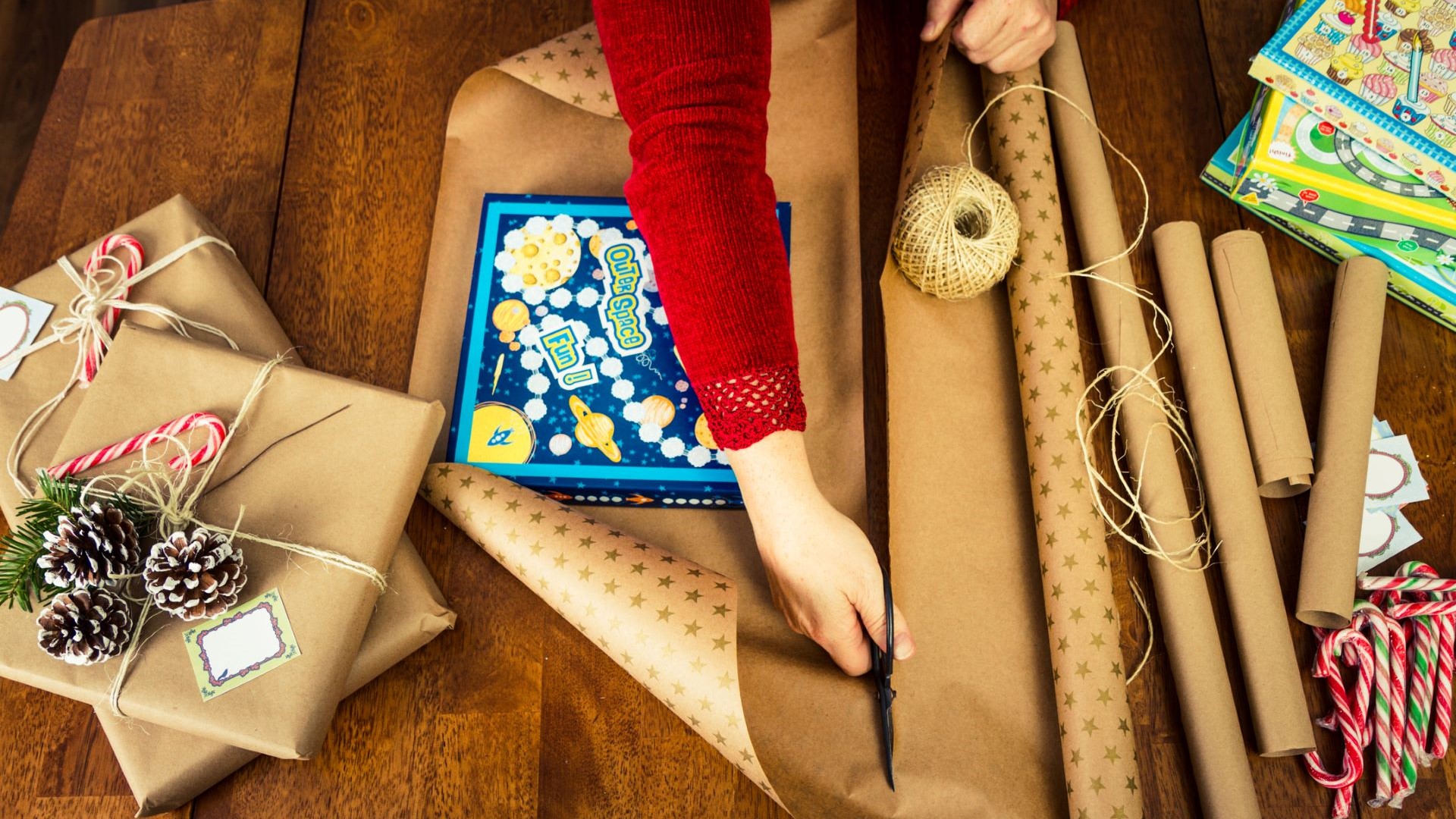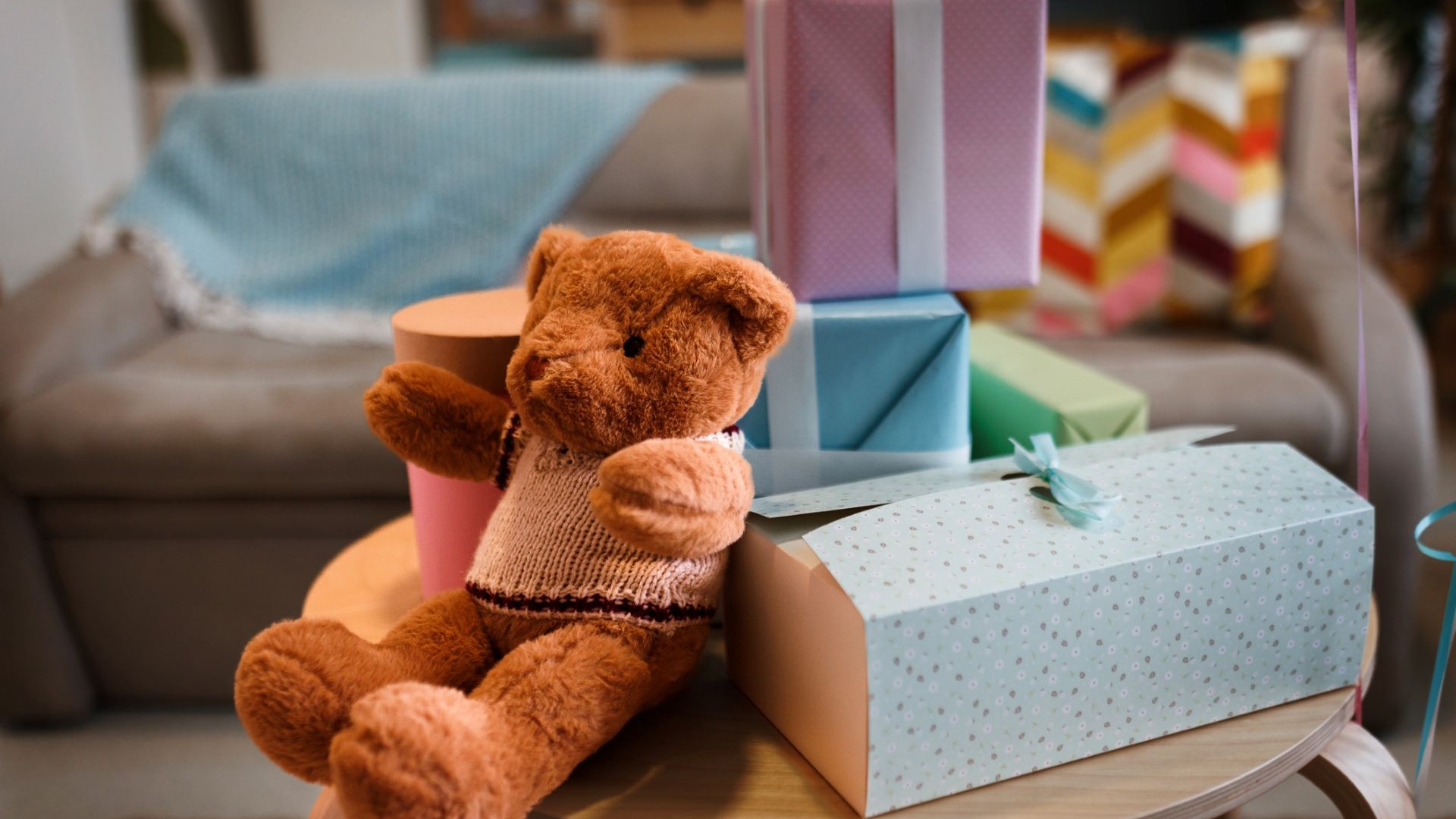Regifting - is it ever okay to regift kids' toys? We ask experts and parents who recycle gifts on the regular (plus six things not to do)
The pros and cons to regifting unwanted toys, and what you should NEVER regift

Is it rude to regift your kids' presents from family and friends and are you breaking all the rules of gift etiquette? We ask the experts and go through the pros and cons of regifting your children's presents.
Thinking of regifting to save money during the most expensive time of the year? The idea of giving away your kids' presents can spark mixed emotions. As parents, we appreciate every gift our children receive - yet we’re also practical. When toys go untouched for months, regifting makes sense. At other times, it may seem rude, hurtful or dismissive, especially if some gifts hold sentimental value for the giver. Some parents love Elf on the Shelf, for example, while others can't stand it!
Editor's note
If you’re on the fence about regifting, you’re not alone. While regifting remains controversial, more families than ever face financial strain this festive season, so it's understandable that more are embracing this strategy.
But with budgets stretched tight these days, the financial benefits of regifting Christmas toys or birthday toys seem to be a no-brainer. Repurposing quality items is better than leaving them to gather dust. We explore the pros and cons of regifting presents at Christmas. (Psst, if you need to distract your kids while you wrap up those regifted toys, get them to check out our guide to how many reindeer Santa has!)
Parents share their opinions on regifting
As I write this, I'll hold my hands up - I HAVE regifted, on multiple occasions. My son's birthday is three days before Christmas, so our house is groaning with toys, books, and gizmos at that time of year. It's always made sense to me to put some of them away, either to give to him another time or to re-gift.
I also have a general rule; if a game or a toy hasn't been looked at or opened within 6 months, it's a regifter. It's clear that my son is not that bothered about playing it or using it, and it's in perfect condition to give away. My one condition is that it's got to have the packaging intact.
Having said all that, I'd be mortified if the recipient suspected, or worse, knew, their present was regifted. So I guess any pride in regifting only goes so far. And while I'd happily receive a regift, I don't want to know it is one.
Goodto family editor Stephanie Lowe has no such qualms about receiving a re-gift. "I wouldn't be offended if I received a present originally intended for someone else. I don't do it much myself, though - it takes a level of organisation and storage that I just don't have the headspace or actual space for. I did once regift an old bottle of fancy light-up gin liqueur to a new friend, only for my husband to point out - after I'd handed it over - that it still had the old date on it. I was horrified!"
GoodtoKnow Newsletter
Parenting advice, hot topics, best buys and family finance tips delivered straight to your inbox.

We spoke to other parents and experts about their experiences of regifting and found a mixed bag of emotions... from guilt and shame to a sense of righteous virtue. Some parents even wear it as a badge of honour. "I've never done it, but I would never rule it out," says mum Jo. "If I have no financial alternative and the toy was in good condition, I don't see why it's a problem."
"There's no way I'd give away my children's presents," says Suz, mum to twins Jack and Floss. "I'd be far too embarrassed - and it feels like an insult to the lovely person who put all that thought and time (and money) into choosing something for them."
"I think it's a brilliant idea," says Anu, mum to Elaina. "I can't stand waste and try to recycle as many things as I can. If that means regifting something that hasn't been used then great - one less item to landfill in my opinion."
Emma Skeet is an artist and environmental campaigner who regularly upcycles gifts for friends and family and even personalises them for resale. "Regifting is a brilliant way to give things a new lease of life, love, and appreciation," she says. "Apart from reducing thousands of tonnes of products every year and reducing our impact on the environment, regifting gives value back to the item, whether it's a family heirloom or something you have received and haven't used. I've covered my boy's old soft toys with beautiful vintage fabrics to create 'new' gifts. They look amazing!"
"Regifting is a relatively divisive topic and depends very much on the individual," says Meg Roberts, marketing manager for Max Spielmann. "Some people regift things they won’t use to reduce waste or prefer to be frugal with their gifting habits, whereas some may see it as insensitive or uncaring. No matter which side you stand on, there are some rules to follow."
Good to Money editor Sarah Handley chips in with sensible advice. "If you or your child have been gifted something you don’t want or need, then passing it on to someone else who would enjoy it and appreciate it makes good financial sense. After the last 18 months of sky-high prices, it is very unlikely that you will be the only person looking to save some money this way."
Here are some tips and tricks from our experts on when it's absolutely fine to regift and how to get it right:
Top regifting rules to follow
- If your child already has it: There's no point in hanging onto a toy or game that your little one already has - you may as well give that joy to another child.
- If you think the regift suits the recipient: Don't just regift for the sake of saving money - take the time to think about whether they will appreciate and use the gift you're recycling.
- If it's safe and age-appropriate: Regifting a toy suitable for a 7-year-old to a toddler is not okay if it contains small items that can be prised off to pose a choking hazard. Nor is a shoot-em-up computer game an age-appropriate gift for a young child. Think before you regift and make sure the person receiving it can use it safely.
- If it's in the original packaging: "If you don’t want to draw attention to the fact that you are regifting, it’s best to pick things that are in their original packaging and are in really good condition," says Sarah. "And avoid regifting back to the person who bought it for you in the first place!
- If you know someone else will love it more: It's much better to see a toy, puzzle or book adored by another child than to see it gathering dust in your child's room. As your little one gets older, you can encourage them to look at their gifts in the same way, developing a sense of generosity and kindness.

Sarah even has advice on 'owning' regifting and making it a part of your regular gifting routine. "Why not start a regifting Secret Santa, or regifting party where the whole idea is to not spend any money, but swap unwanted presents instead?"
Top regifting no-nos
When it comes to regifting, there are some things that you really should avoid doing, especially if you want your recycled presents to go undetected. Here are some simple gift-giving clangers to avoid:
- Don't regift something personal or sentimental: If a person has given your child something heartfelt and thoughtful, don't give it away. Even if your little one doesn't play with it now, they may value the sentiment in the future.
- Don't regift it without changing the wrapping: Take any gift tags off and rewrap before you regift. It will help you think about the person you're wrapping it for, which will help to reduce any feelings of guilt or shame in recycling an unwanted present.
- Don't regift in your circle of friends: If you're regifting toys within the same friend circle or family, it's best to be transparent about it to avoid hurt feelings if the original giver were to find out. Some may not mind at all, while others may feel offended
- Don't regift something that's out of date: Think before you wrap up that Disney character from a movie released three years ago. A gift that's a few years old, even if the packaging is intact, will give your secret recycling practice away.
- Don't regift anything that's been opened or used: This is the golden rule of regifting - unless you can upcycle and change it into something new and meaningful, don't try to pass off opened or used presents to other unsuspecting kids!
- Never regift to the original gift-giver: Possibly the most embarrassing regift clanger there is. If you love to regift, it's worth keeping a note of who gave the present in the first place, to avoid this mortifying situation.
What are the alternatives to regifting unwanted presents?
There are lots of geat alternatives to regifting unwanted presents. Here are just a few ideas:
- Donate: Find a charity, shelter, toy bank or other organisation that accepts new or used items in good condition. This way, they can be put to good use for someone in need. Places like women's shelters, children's hospitals, family support centres and toddler groups often accept donated toys and gifts.
- Return or exchange: If tags are still attached, and the return policy allows it, see if the gift can be exchanged for something you'll actually use. Even without receipts, many shops offer credit notes you can use in the future.
- Swap: You could ask friends or family to have a session where you all bring duplicate or unwanted gifts to swap for ones you like instead. Everyone is happy and nothing goes to landfill.
Featured experts

Emma Skeet has been prioritising the environment and ethics in her work for over 30 years, creating art, running workshops and reusing 'waste' to regift as notebooks, jewellery, toys and clothes.

Meg is a copywriter and Digital Marketing Manager For Timpson Group, which includes personalised gift experts Max Spielmann.
If you've been inspired by some of our tips on making Christmas easier, then why not check out these other great festive guides, from the best films to watch on Netflix over the festive season to delicious Christmas recipes. Plus, keep the kids entertained over the holidays with these easy Christmas crafts.
Joanne Lewsley is mum to a tween, and freelance copywriter and editor who creates parenting, health and lifestyle content for evidence-based websites, including BabyCentre, Live Science, Medical News Today and more.